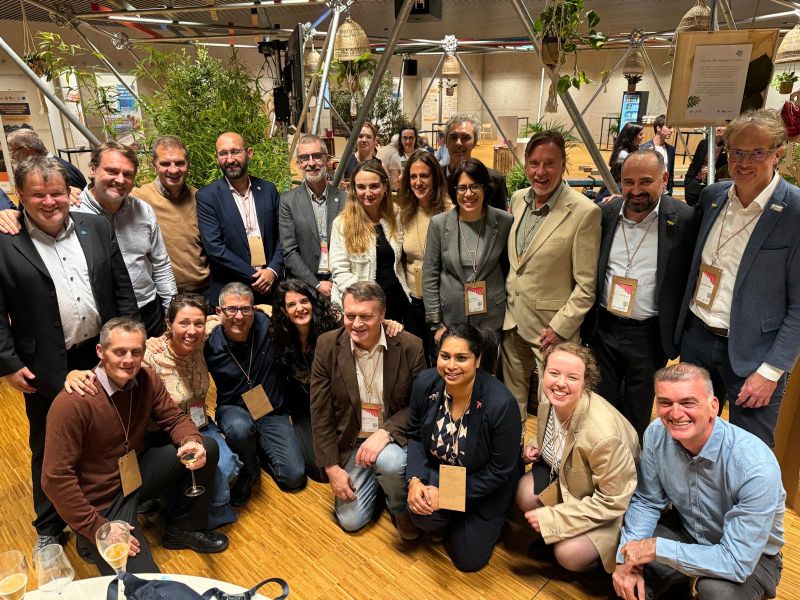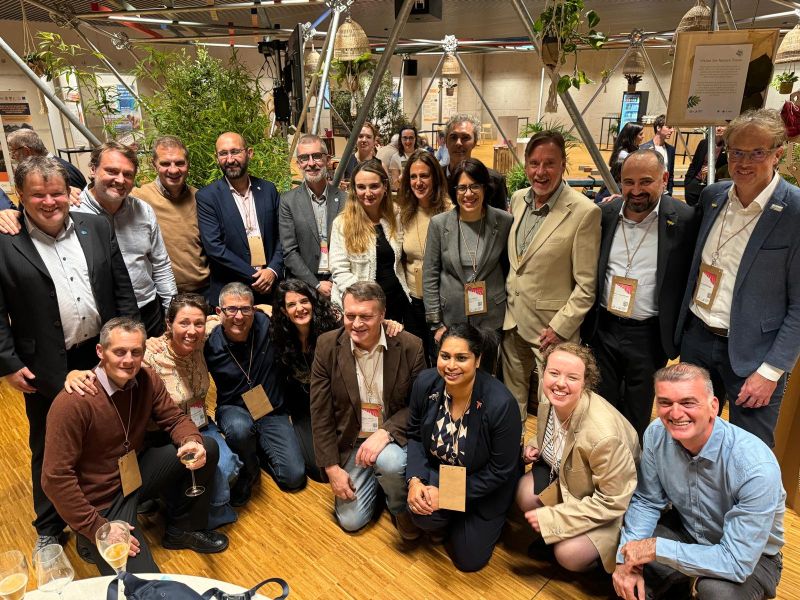The Regional Conservation Forum (RCF), which brought together more than 200 experts and IUCN members from Europe, Central, and Northern Asia over three days, once again stood out as a major event for biodiversity protection. This platform for dialogue allowed for the design of new perspectives for a more sustainable world while reaffirming IUCN’s unwavering commitment to its mission over the past 76 years.

Essential Discussions One Year Before the World Conservation Congress
The RCF in Bruges provided a unique opportunity to discuss the major priorities of international conservation. These warm and constructive exchanges are crucial in a context where climate and environmental challenges are increasingly urgent.
With only one year to go before the World Conservation Congress, every idea shared and every dialogue strengthens a shared vision of the challenges ahead. This forum also reinforced connections between participants and laid the groundwork for concrete actions in the future.
Wildlife Trafficking: A Major Challenge in Europe
Among the key topics discussed, the fight against wildlife trafficking took center stage. This illicit trade, generating between €7.8 billion and €20 billion annually (according to INTERPOL), is one of the four most lucrative transnational crimes. In Europe, and particularly in France, it poses an increasing threat to species such as sturgeons, eels, and goldfinches.
In 2021, 36 tons of illegal wildlife products were seized at Roissy Airport, representing only a fraction of the actual trade. This trafficking is often linked to criminal activities such as money laundering and corruption.
To combat this, solutions like the CITES-LEX platform, developed by FAO and CITES, support the enforcement of international wildlife laws. The French IUCN Committee also advocates for strengthened legal frameworks, tighter controls, and increased public awareness, with 25 concrete proposals to fight this scourge.
Strengthened European Cooperation
The RCF was also an opportunity to work on key programs, including protected areas and the implementation of 32 recommendation projects from the French Nature Congress. These proposals align with international priorities for biodiversity conservation.
At the last World Conservation Congress in Marseille in 2021, 148 recommendations were adopted, 18 of which were spearheaded by the French IUCN Committee. These contributions highlight the strength and cohesion of national networks, with the French Committee being the second-largest IUCN national network after the United States.
A Key Step Toward the Future
As environmental challenges grow more pressing, this Regional Conservation Forum demonstrated the conservation community’s ability to collaborate, exchange ideas, and take action. With 78 member organizations, two ministries, and the involvement of 300 experts, the French IUCN team aims to play a decisive role in preparing the global resolutions to be debated next year.
The energy and commitment shown in Bruges remind us that protecting biodiversity is both a necessity and an opportunity. The road ahead is long, but each forum and every discussion bring us closer to a future where humans and nature coexist harmoniously.

Comments are closed